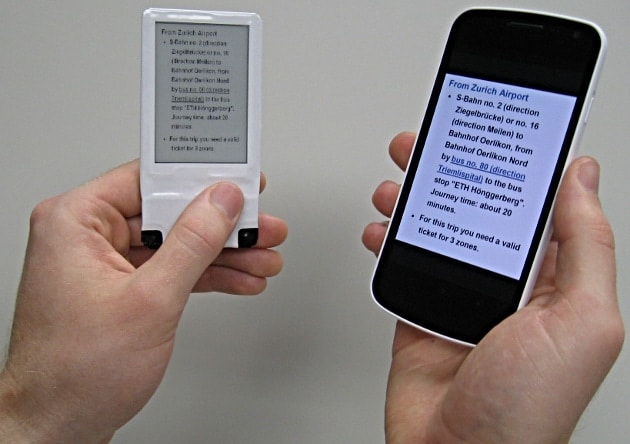U.S. Copyright Office Publishes Final Rules With DMCA Exemptions
![7827785878_34859830a8[1]](https://the-digital-reader.com/wp-content/uploads/2012/10/7827785878_34859830a81-250x250.jpg)
The list of exceptions was released today, and there is both good news and bad news for ebooks.
The good news is that the disabled readers can still remove DRM which would inhibit their ability to use the content. The bad news is that there are no other exceptions which would allow you to remove the DRM.
Update: One reader pointed out that I should have read more carefully. The exceptions for disabled readers is actually broader than before. A couple restrictive clauses were removed. For example, the exception used to state that all versions of a title must have the accessibility features disabled. Now someone can strip the DRM of a legally purchased Nook ebook just because that is the one they own. It doesn’t matter if the other formats are accessible.
What would have I liked to see? How about allowing us to remove DRM on dead platforms (MSReader, Microsoft, and more) or perhaps an exception on removing DRM on legally purchased content after the seller revokes access (okay, that would never be allowed to happen).
Still, at the very least I can report that the status quo has remained ante. With this Register of Copyrights, I expected to lose exceptions, not gain any. She is an industry stool pigeon after all.
image by jenni from the block


Comments
Doug October 25, 2012 um 6:56 pm
Re DRM on public domain titles, see page 41 of the linked document: "Section 1201 does not prohibit circumvention of a technological protection measure when it simply controls access to a public domain work; in such a case, it is lawful to circumvent the technological protection measure and there is no need for an exemption."
As for the new rules being "status quo ante," that’s not the case for the one e-book exemption. Under the current (old) rules, DRM can be stripped from an e-book to allow a visually-disabled person to read it, but only "when all existing ebook editions of the work (including digital text editions made available by authorized entities)" block the visually-disabled. Under the new rules, that restriction is gone. The only requirement is that the copy be lawfully obtained by a visually-disabled person and that "the rights owner is remunerated". Even the remuneration requirement is dropped for "non-dramatic literary works" which currently can be legally reproduced by certain "authorized entities" for use by the visually disabled.
So for the visually-disabled, the new exemption is much less restrictive. If you got an e-book copy from B&N, you can strip DRM to let a screen-reader work on it even though you could have gotten a copy from Amazon that was already enabled for text-to-speech. For the rest of us, the new exemption is more restrictive because it only applies to "a blind or other person with a disability, as such a person is defined in 17 U.S.C. 121."
Nate Hoffelder October 25, 2012 um 7:32 pm
Thanks!
I actually cannot see that PDF; I have limited internet today.
Fbone October 26, 2012 um 1:23 am
After Jan 1st it will be illegal to jailbreak smartphones. Tablets remain illegal to jailbreak.
Fbone October 26, 2012 um 1:26 am
Sorry, I should have said unlock a smartphone.
Liz October 26, 2012 um 5:55 pm
Has anyone actually been prosecuted and/or sued for removing DMR from a legally purchased e-book? Is there a manditory sentencing or fine listed? How does it compare to those for pirating? (Are there any examples of book pirating cases, or just music and software?)
Nate Hoffelder October 26, 2012 um 5:56 pm
Not that I know of, no.